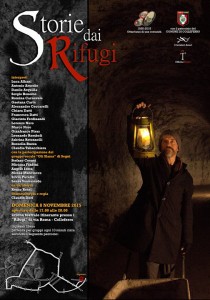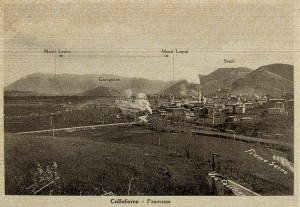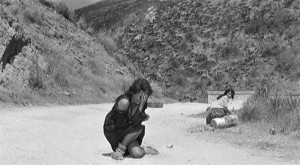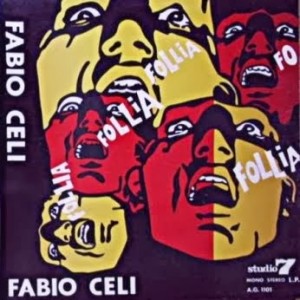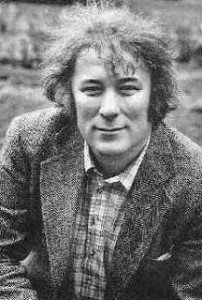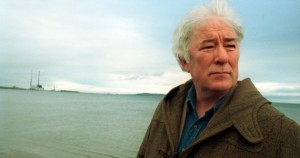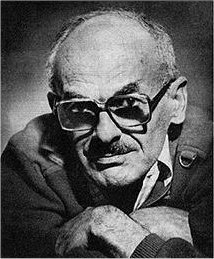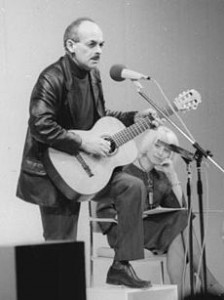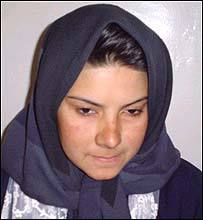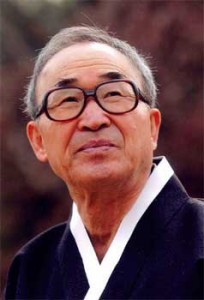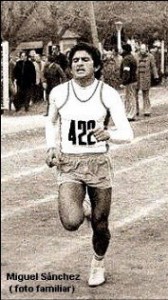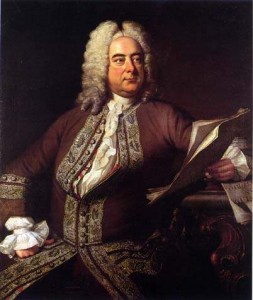Colleferro and neighboring countries such as Segni, Valmontone, Artena, Montecassino were behind the Gustav Line (the defensive line that was prepared by Hitler on Oct. 4, 1943 and it was destroyed May 18, 1944). The plain of Colleferro, chemical plants of the arms industry (the largest in Italy), the Lepine mountains around (with countries of strategic control as Segni and Carpineto), the way “Casilina” – who arrived in Rome – constituted, all , strategic military sites.
The German lines of fortification.
Colleferro suffered terrible bombing by allied forces from November onwards, as the March – the fortieth – where were destroyed the electrical connections and any useful infrastructure. The people tried to survive the refuges that were built before the birth of the city. The refuges were pozzolana quarries that were used to build the first buildings for the workers of the munitions factory “Bombrini Parodi Delfino.” In the hills within the city they were traced 6km tunnel, with fifteen different entrances. There was a ban on the use lighting. It set up the artificial fog to hide the sites of interest to allied planes.
The refuges were a second Colleferro and life oscillates from hell above, the catacombs below.
The actors have recalled the activities of each day. Solidarity (a donut for a wedding that was prepared thanks to the black market). Firefighters, every day after the bombing, they climbed to extinguish fires, to recover the dead, to shine the unexploded bombs and they were going to control the chemical deposits in the industry, so that it would not explode, because it was operating: the workers were forced under the control of the fascists and the Germans.
The Factory “Bombrini Parodi Delfino”
Young people drinking wine, in the evening, which was bought on the black market. They played and sang along with the Germans, the Russians and Ukrainians prisoners, and no one understood a word. The next morning, all they went up in hell as enemies, to obtain the salt, for drying clothes because of the moisture of the subsoil. They could not light fires for the small air exchange. Inside the refuges there were a chapel, a registry office, an infirmary. Women did not go out for fear of being raped, if not killed (the film “The Women” with Sophia Loren, is an example in this regard).
One frame of the film “La Ciociara”
Fear, darkness, hunger, dirt, infections and the control by the fascist authorities, were the pendulum of days.
I have witnessed the magnificent traveling representation. Everything has been a blow to the stomach to every word. Everything seemed to happen at that time, while the public walked at the descent of the dead.
I feel the same feeling walking in Amsterdam (Netherlands) at the Anne Frank House (the Jewish girl who died in the field of Auschwizt, – the author of the famous and tragic “Diary”): fear and claustrophobia. Half my family is originally from Valmontone. It is the country that borders Colleferro. Valmontone was completely destroyed in 1944, except the Church, the “Doria’s Building”, and two or three houses. Every square meter was bombed. The deaths of these countries are the patrimony of each family. It is no coincidence that there has been a re-enactment. Witnesses died almost everyone. I was little and adults who had more than fifty years, and they said that they were old, they told these events, in the seventies. I peered through the door, because “old” did not want us small we listened. And at parties, after lunch, in the afternoon hours of digestion, telling them the facts of that time, and their eyes they were changing: their was young, but with tears.
We speak of the bombing with extreme superficiality, today. A bomb shakes the body, even at a distance. Well, you have an empty air. The ear stores the noise and any balance is lost. And in the future, for every such timbre, the brain reverts to primordial patterns, causing the beat of the teeth, leaving the adrenaline and the iron in the mouth. The nightmares become brothers every night, if we remain in good health and if we do not go crazy, because insanity is the ultimate gift.
The refugees have no homes today. They do not have water. Every ten minutes a difficulty appears. Lice do company. You may not feel the smell of dirt. The skin and hair age immediately. The teeth are lost. Diseases gnaw the body. The little food is dry and bland, but it leaves the temptation to eat insects.
The refuge away death, but it shortens life. The population, before the horror was surprised: “To us, just us? – Near Rome? From the Duce?”.
I offer a paraphrase of what my grandparents told him (which they did two years of military service in war and they left soon after), my grandmothers and aunts: “War is not the bell tolls. The war is not knocking at door. The war is already within “.
